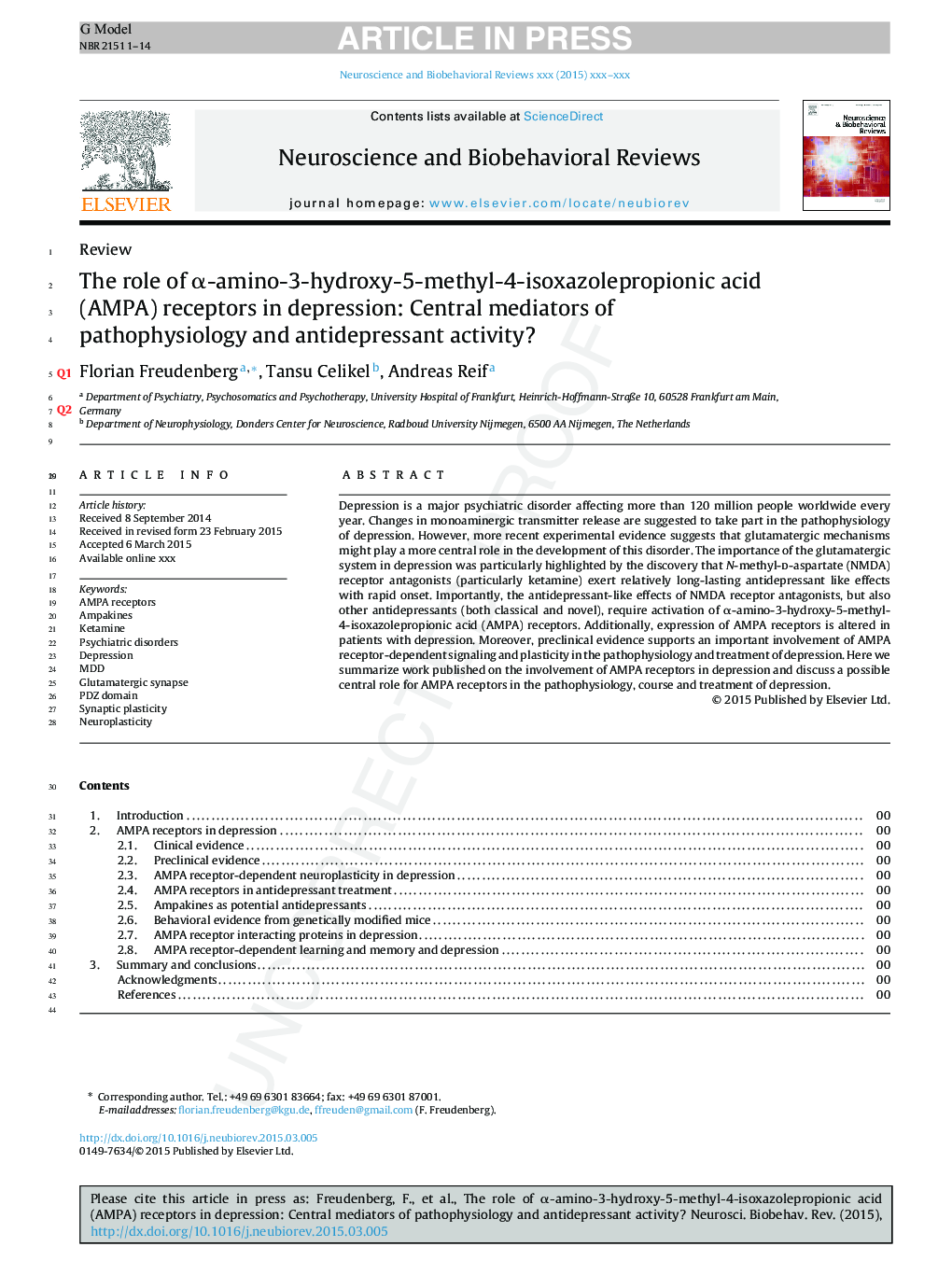| Article ID | Journal | Published Year | Pages | File Type |
|---|---|---|---|---|
| 7303555 | Neuroscience & Biobehavioral Reviews | 2015 | 14 Pages |
Abstract
Depression is a major psychiatric disorder affecting more than 120 million people worldwide every year. Changes in monoaminergic transmitter release are suggested to take part in the pathophysiology of depression. However, more recent experimental evidence suggests that glutamatergic mechanisms might play a more central role in the development of this disorder. The importance of the glutamatergic system in depression was particularly highlighted by the discovery that N-methyl-d-aspartate (NMDA) receptor antagonists (particularly ketamine) exert relatively long-lasting antidepressant like effects with rapid onset. Importantly, the antidepressant-like effects of NMDA receptor antagonists, but also other antidepressants (both classical and novel), require activation of α-amino-3-hydroxy-5-methyl-4-isoxazolepropionic acid (AMPA) receptors. Additionally, expression of AMPA receptors is altered in patients with depression. Moreover, preclinical evidence supports an important involvement of AMPA receptor-dependent signaling and plasticity in the pathophysiology and treatment of depression. Here we summarize work published on the involvement of AMPA receptors in depression and discuss a possible central role for AMPA receptors in the pathophysiology, course and treatment of depression.
Keywords
Related Topics
Life Sciences
Neuroscience
Behavioral Neuroscience
Authors
Florian Freudenberg, Tansu Celikel, Andreas Reif,
